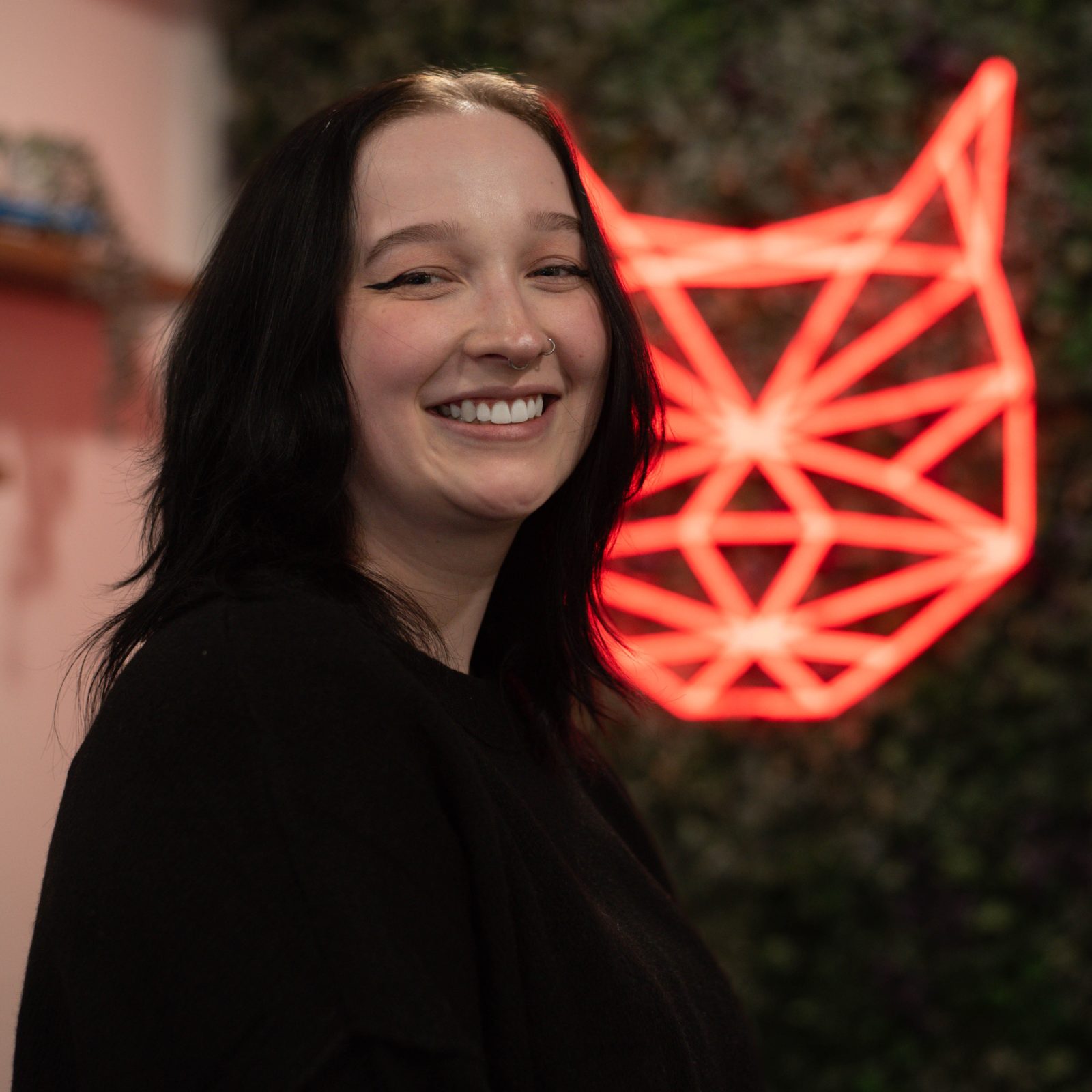When users visit your website but leave without converting, how do you bring them back? That’s where retargeting ads come in. Retargeting is a marketing strategy for re-engaging users who have previously interacted with your site but didn’t make a purchase or complete a desired action.
From a marketer’s perspective, it’s about reminding potential customers of a product or service they were interested in but didn’t purchase for a number of reasons
These highly effective PPC campaigns allow you to reconnect with potential customers, keeping your brand top-of-mind and increasing the chances of conversion.
Read on to learn more about what retargeting ads are, how they work and how they can benefit your marketing efforts with the expert PPC team at Wildcat Digital.

A retargeting ad in PPC is a form of online advertising that targets users who have previously interacted with your website or app but didn’t complete a desired action, such as making a purchase, submitting a lead generation form or giving you a call. These ads are designed to remind or encourage these potential customers to return and complete their actions.
Retargeting ads work by using tracking technologies like cookies or pixels to identify users who have visited your site. Once identified, they are shown tailored ads as they browse other websites or social media platforms, keeping your brand visible and helping to increase the likelihood of conversion.
Now you know what retargeting ads are, here’s just a few reasons why you should be using them:
Retargeting helps you re-engage users who have already interacted with your brand, making them more likely to convert. These users are familiar with your offering, so reminding them of your product or service increases the chances they’ll follow through on their original intent.
Since you’re targeting an audience that has already expressed interest in your business, the cost of converting these individuals is typically lower compared to attracting new visitors. As a result, retargeting ads often lead to a higher return on investment (ROI) for your advertising spend.
Retargeting keeps your brand at the front of users’ minds by continually reminding them of your products or services. This consistent exposure increases brand awareness and reinforces the connection between your offering and the user’s needs, even if they initially left your website without purchasing.
Unlike other marketing methods that might cast a large net to find a few individuals interested in your specific product, retargeting campaigns only target consumers who have already visited your website. They have already shown interest in your brand by coming to your website, so they are much warmer and further into the sales funnel. As such, tailor your specific messaging, ad copy, CTA, and corresponding landing page to this audience.

Retargeting, in technical terms, involves tracking visitors who have previously visited your website and displaying ads for the products or services they viewed. This strategy works across various channels, including social media, display networks, and email.
The purpose of retargeting ads is to gently remind users to complete their purchase or contact you. To identify and target users across the web with these ads, a third-party cookie from a retargeting ad service is stored in their browser. It’s called “third-party” because the cookie is saved in the domain of the retargeting service, not the website the user visited.
There are several retargeting ad platforms and tools available that help businesses effectively reach their target audience by showing ads to users who have previously interacted with their website or app. Here are some of the most popular platforms and tools for running retargeting ads:
Google Ads is one of the most powerful and widely used platforms for retargeting. It allows you to reach users who have visited your website across millions of websites that are part of the Google Display Network. Google Ads offers a variety of retargeting options, such as:
Facebook, which also includes Instagram, provides robust retargeting capabilities through its Ads Manager platform. By using the Meta Pixel, you can track visitors to your website and retarget them with ads on Facebook, Instagram, Messenger, and the Audience Network. Facebook also allows for dynamic product ads, which automatically show users the products they interacted with while browsing your site.
For B2B businesses, LinkedIn offers excellent retargeting capabilities. By using the LinkedIn Insight Tag, you can track visitors to your website and retarget them with ads. LinkedIn allows you to segment your audience based on job title, company, industry, and more, enabling highly targeted ads for professionals and decision-makers.
X (Twitter) allows you to retarget users who have visited your website using X Pixel. You can create tailored audiences based on specific interactions, such as people who visited your site, watched a video, or engaged with your tweets. Retargeting on Twitter can help you stay top-of-mind for users as they engage with content on the platform.
Bing Ads allows businesses to re-engage users who have previously interacted with their website or app by showing them tailored ads as they browse other websites or use Microsoft services like Bing, Outlook, or MSN. Microsoft Ads offers powerful retargeting features to help you reach potential customers and drive conversion

There is more than one method of retargeting – here are some of the most common:
Pixel-based retargeting is one of the most common methods used in PPC advertising. A small piece of JavaScript code (pixel) is placed on a website, which tracks visitors and allows advertisers to show targeted ads to them as they browse other websites or social media platforms.
List-based retargeting uses customer data (such as email addresses or phone numbers) to re-engage users through custom audience targeting. Advertisers upload a contact list to platforms like Facebook or Google Ads, and the system matches the users to their online profiles to serve them targeted ads.
Dynamic retargeting personalises ads by displaying products or services that a user has previously viewed. Instead of showing a generic ad, the system dynamically generates an ad featuring the exact items the user interacted with.
Search retargeting allows advertisers to target users who have visited their website when they perform related searches on Google or Bing. This helps re-engage high-intent users with tailored search ads.

Social media retargeting allows businesses to show ads to past website visitors or engaged users on social media platforms. These ads can appear in feeds, stories, or even within messaging apps.
Video retargeting focuses on users who have watched or interacted with video content from your brand. These users can be retargeted with follow-up ads on platforms like YouTube, Facebook, or display networks.
Email retargeting allows advertisers to serve ads to users who have interacted with previous email campaigns. This can be done through pixel tracking in emails or by retargeting users who opened but didn’t click on the CTA.

Alongside retargeting, you might have also heard about remarketing, but what’s the difference?
Retargeting is a form of online advertising that displays targeted ads to users who have visited a website or interacted with a brand but did not complete a desired action.
Popular Retargeting Platforms:
Remarketing focuses on re-engaging existing customers or leads through personalised email campaigns or targeted ads. It primarily works by leveraging first-party data, such as email lists and past purchase history.
Best For:
Popular Remarketing Platforms:

Retargeting ads can be incredibly effective, but if not managed properly, they can quickly drain your ad budget without delivering the best ROI. Managing retargeting ad spend efficiently requires smart audience segmentation, bid optimisation, and continuous testing. To ensure you’re getting the most out of your retargeting campaigns, here’s how you can control ad spend while maximising conversions.
Each goal requires different bidding strategies, audience segments, and ad creatives.
Instead of retargeting all visitors, divide them into segments:
Why Does it Matter?
Focusing ad spend on high-intent users reduces wasted budget and increases ROI.
Showing the same ad too many times can annoy users and lead to ad fatigue.
Use the right bidding model to manage costs effectively:
Best Approach
Start with manual CPC to control costs, then switch to smarter bidding strategies such as Target CPA or ROAS as you collect data.
To avoid unnecessary ad spend, exclude:
Continuously A/B test:
Track key metrics:

Running retargeting ads is great, but how do you know if they’re actually working? To ensure you’re getting the best return on investment (ROI), it’s crucial to track the right performance metrics and analyse your campaign results. Here’s how you can measure the success of your retargeting ads effectively.
Your KPIs will depend on your goal, and tracking the right metrics ensures you measure what truly matters.
CTR = (Clicks / Impressions) × 100
A good CTR for retargeting ads is typically 0.7% – 2%, depending on the platform.
Learn more about click through rates in PPC in our dedicated blog, What is Click Through Rate in PPC?
CVR = (Conversions / Clicks) × 100
This metric tells you how many users complete a desired action after clicking your ad. If your CVR is low:
Retargeting ads usually have 2-3x higher conversion rates than standard display ads.
CPA = Total Spend / Conversions
If your CPA is too high, you may be spending too much to acquire a single customer. Lower CPA by:
CPA varies by industry, but retargeting ads often have lower CPA than prospecting ads.
ROAS = Revenue Generated / Ad Spend
This is the most important metric for e-commerce businesses. A ROAS of 4:1 means you’re earning $4 for every $1 spent. If your ROAS is low:
A ROAS of 3-4x is considered good, but the goal varies by industry.
Frequency = Total Impressions / Unique Users
Showing the same ad too many times can annoy users and lead to ad fatigue. If frequency is too high:
Keep frequency between 5-10 impressions per week per user.
If users click your ad but leave immediately, your landing page may not match their expectations.
A bounce rate below 50% and an average session duration of 30+ seconds is ideal.
Learn more about these metrics in our detailed blog about PPC KPIs and Metrics, What are the Main KPIs of PPC?

Retargeting is one of the most effective methods for re-engaging previous visitors and converting them into customers. However, if you are new to retargeting, it’s crucial to set up your campaigns strategically to prevent wasted ad expenditure. Here are our top 5 tips to launch a high-performing retargeting campaign!
Before setting up your campaign, decide what you want to achieve:
Having clear goals helps you choose the right audience, bidding strategy, and ad creatives.
Not all website visitors are the same. Instead of retargeting everyone, create audience segments based on behaviour:
Use tools like Google Ads, Facebook Ads, or Microsoft Ads to build custom audiences based on website activity.
Different platforms work best for different businesses:
Start with Facebook & Google Ads, then expand to other networks as you scale.
Retargeting ads should feel personal and compelling, not annoying. Follow these best practices:
Regularly A/B test different ad creatives, CTAs, and audiences to optimise performance.

Retargeting ads are a game-changer for businesses looking to recover lost traffic, boost conversions, and maximise ROI. At Wildcat Digital, we specialise in crafting highly effective retargeting campaigns that bring customers back to your website and drive action.
Whether you’re looking to increase sales, reduce cart abandonment, or improve brand awareness, Wildcat Digital has the expertise and proven strategies to help you succeed.
Book a free consultation today and let’s start turning lost visitors into loyal customers!

Founder
Our founder, Will Hitchmough, worked at a number of high profile Sheffield Digital Agencies before founding Wildcat Digital in 2018. He brings an extensive knowledge of all things related to SEO, PPC and Paid Social, as well as an expert knowledge of digital strategy.
Digital Marketing can be a minefield for many businesses, with many agencies ready to take your money without knowing how to deliver results. I founded Wildcat Digital to deliver digital success to businesses with smaller budgets in a transparent way.

Head of Growth
Rich joined us in May 2024 to head up our growth team. With years of experience helping other agencies to grow, Rich joins us at an exciting time as Wildcat is working on a five-year plan to become one of the biggest agencies in the UK.
Outside of work, Rich is a father to three children, which keeps him very busy! He’s also recently started running again to keep fit and loves a bit of DIY.

Head of Digital
Sarah joined Wildcat in January 2025, bringing over seven years of SEO expertise to the team. With a background in Fashion Communication and Promotion, she has worked both in-house and at agencies, covering a range of digital marketing specialisms before focusing on SEO.
Passionate about all things search, Sarah thrives on helping brands grow their online presence.
Outside of work, she enjoys walking her dog, running, and shopping for vintage clothing.

Office Manager
Amelia joined Wildcat Digital in January 2025, bringing extensive experience in HR, Health & Safety, Facilities Management and IT Support. Previously an Operations Manager at The University of Sheffield, she has a strong background in creating efficient and well-organized work environments.
Specialising in HR, Health & Safety, and Facilities Management, Amelia ensures the Wildcat Digital team has the resources and support needed to thrive. Whether managing office operations, maintaining compliance, or fostering a positive workplace culture, she keeps everything running smoothly.
Outside of work, Amelia loves trying new things, traveling, camping, and walking. She also enjoys socialising and exploring new places with friends and family. Her adventurous spirit and proactive approach make her a valued member of the team.

Client Success Coordinator
Siena joined us in 2023 with a background in sales and digital marketing. She leads on client relationships across the company, ensuring that our customers are happy throughout their journey with us, from their initial consultation through to onboarding and beyond.
Outside of work, Siena enjoys travelling and getting stuck into the local culture. She likes to make the most of her experiences and particularly enjoys watching sunrises and sunsets from beautiful locations around the world.

SEO Account Director
Paul has a strong background in SEO, having previously founded and ran a successful eCommerce business, as well as running a personal blog that achieves an average of 17K users per month. Paul’s knowledge of SEO is extensive, with a strong emphasis on client handling and technical SEO.
Outside of work, Paul enjoys spending time with his family and staying active with weight lifting and combat sports.

Team Lead & Technical SEO Account Manager
With a degree in Computer Science and SEO experience dating back to 2017, Dariusz has a wide range of SEO skills and knowledge. His specialist knowledge of Technical SEO has firmly landed him the title of Wildcat’s Technical Wizard, and he has recently taken on the responsibility of Team Leader for the Panthers Team.
In his spare time, Dariusz loves hiking, experimenting and trying new coffees and loves learning new things. He is currently learning more about CRO and AI and how this could benefit our clients.

Team Lead & Senior SEO Account Manager
With a background in sales, Molly is a natural Account Manager, brilliantly handling any issues that come her way. Having joined us as a Digital Marketing Executive, and working part-time through her final year of University, Molly is a shining example of how hard work pays off. She is now an SEO Account Manager with a particular interest in Content and Client Management.
In her spare time, Molly loves to get out in nature, hiking and exploring the Peak District. She also loves cooking and likes to unwind with a bit of yoga.

PPC Team Leader
Libby joined Wildcat in 2021 as our first PPC hire. With a degree in Digital Media Production, a Master’s in Digital Media Management and previous experience in Social Media Management, Libby hit the ground running and has since climbed the ranks to Senior PPC Account Manager and has a particular interest in the eCommerce sector.
Outside of work, Libby likes gaming, and cooking and likes to keep active by lifting weights.

Senior SEO Account Manager
With a degree in Film and TV production, and a varied career history, Jamie made the move to marketing with a Masters degree in Digital Media Management. He has since worked in SEO at Agencies across Sheffield, before joining Wildcat and working his way up to SEO Account Manager. Jamie has a particular interest in backlinks and Digital PR and has recently gained a client a valuable backlink from Forbes!
In his spare time, Jamie is an avid foodie and loves trying new restaurants and cuisines. He also loves to travel and spent a year travelling to Australia after university.

SEO Account Manager
Jasmine joined Wildcat in 2022 with a strong background in SEO and Account Management. At the time, she was finishing up a Level 4 Apprenticeship in Digital Marketing from the Chartered Institute of Marketing, and has since worked her way up to SEO Account Manager. Jasmine excels at content writing and promotion, and particularly enjoys finding creative ways to join the dots on multi-channel campaigns.
In her spare time, Jasmine volunteers at a charity, helping combat loneliness & social isolation experienced by older neighbours. Outside of Wildcat, she owns a catering company, Savery Grazing, creating delicious grazing tables & platters for a range of events. She also loves skiing and exploring the Peak District.

Senior SEO Executive
After spending ten years managing businesses, restaurants, cafes and event spaces across Sheffield, Jon decided to change careers and joined Wildcat as an SEO Executive in 2022. He especially enjoys the client management side of the job, helping them to understand digital marketing and ways in which they can build their business’s presence online.
Outside of work, Jon likes to keep fit with running, badminton and football, and also loves music.

Senior SEO Executive
Andy joined Wildcat in 2023 after starting his digital marketing career in-house for a local Sheffield company. Since joining, he has developed a strong interest in Technical SEO and has strong skills in Account Management.
Outside of work, Andy loves music and plays in a couple of bands. He also enjoys rock climbing, cycling, photography and good food.

PPC Executive
Before joining Wildcat, Tom worked across different industries, building skills in sales and customer service. He later developed a passion for digital marketing whilst working on personal marketing projects and freelance ventures, and gained numerous certifications in PPC and Social Media.
Outside of work, Tom enjoys staying active by going to the gym and hiking. He also loves travelling and motorbiking.

Senior SEO Executive
Kezia joined us in July 2024 after completing a CIM Certificate in Digital Marketing and gaining experience in Content SEO at another Sheffield agency.
In her spare time, Kezia loves to get outdoors, bouldering, hiking and travelling.

Senior PPC Executive
Alex joined Wildcat Digital in December 2024 as a Senior PPC Executive, bringing a strong background in Paid Media, Paid Social, and Programmatic advertising. With a degree in Business & Marketing and Google Ads certifications, she has the expertise to craft high-performing campaigns that drive results.
Before joining Wildcat Digital, Alex worked at two leading agencies in Leeds, honing her skills across various digital advertising platforms. Her analytical mindset and strategic approach help businesses maximize their online presence and advertising budgets.
Outside of work, Alex enjoys spending time with her dog, Lola, and going on walks with her dog walking group. She’s also a keen footballer and loves playing five-a-side whenever she gets the chance. Her enthusiasm and team spirit make him a great addition to the Wildcat Digital team.

SEO Executive
Amy joined Wildcat in 2024 with a background in journalism, having worked as a News Editor and Editor-in-Chief at The Sheffield Tab. She is naturally interested in Content SEO and research, so will no doubt prove to be a content power-house.
In her spare time, Amy loves watching crime shows, listening to music and hanging out with her dog, Eddie!

SEO Executive
Reiss joined the Wildcat Digital team in July 2025, with a background in journalism and digital content, Reiss brings both creativity and technical know-how to the team.
After graduating with a Journalism Studies BA from the University of Sheffield, where he also served as Games Editor and Deputy Editor for the student-run newspaper – Reiss jumped straight into the world of climate tech communications.
Outside of work, Reiss loves crochet, swimming, playing guitar, and diving into both video and board games. He’s always up for picking up new skills and trying new things – which makes him a perfect fit for our team!

Content & Proposal Writer
Liv joined the WildcatDigital Team in June 2025, with a strong background in financial admin and client care, Olivia is taking an exciting step into the creative world – and we’re so glad she’s doing it with us!
She’s currently studying content creation through her apprenticeship with Wildcat, and already bringing fresh energy and creativity to the team.
Outside of work, Olivia runs her own BIAB nail business, loves reformer Pilates, long walks, and is a member of a competitive dance team.

December 17, 2025
As we enter into 2026 and reflect back on the year as business owners and digital marketers, we can’t help…

December 17, 2025
Could your website be too ‘thin’ to rank well? Are you even aware of the ways it could be lacking…

December 17, 2025
Creating effective website content relies on choosing the right keywords and understanding how Google interprets them. Even with a strong…